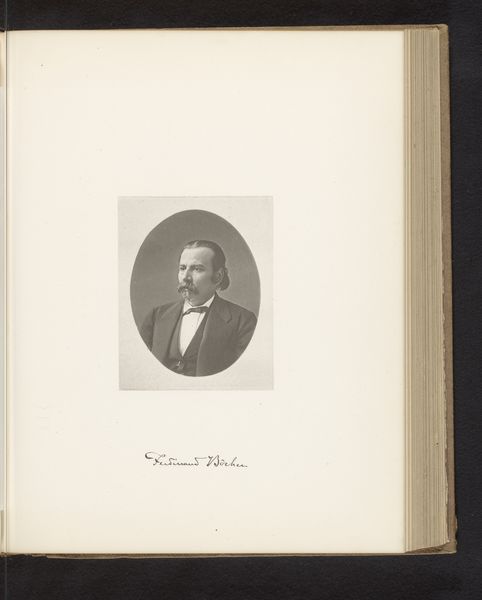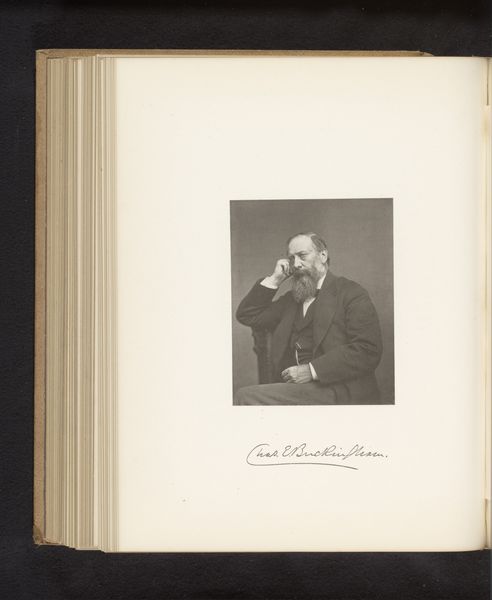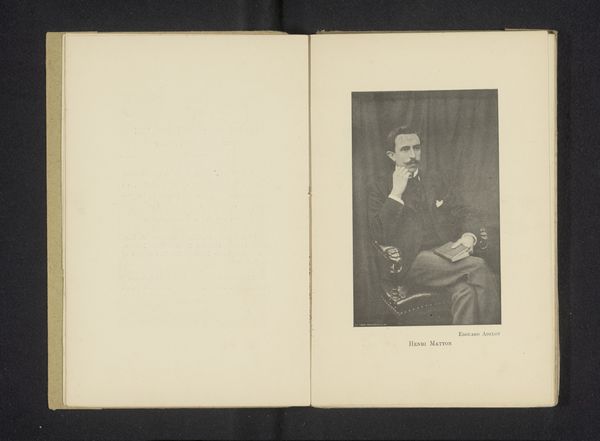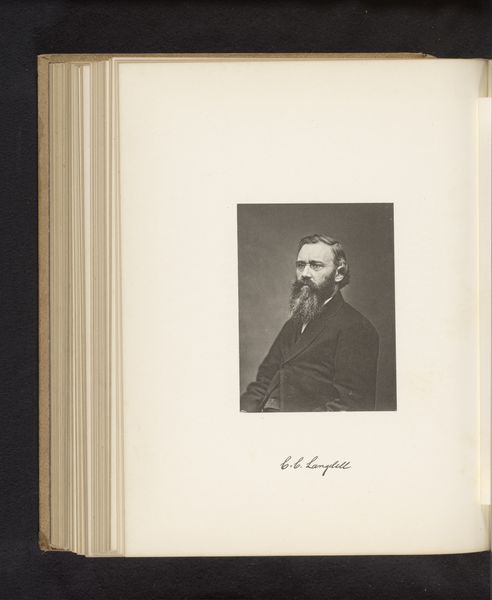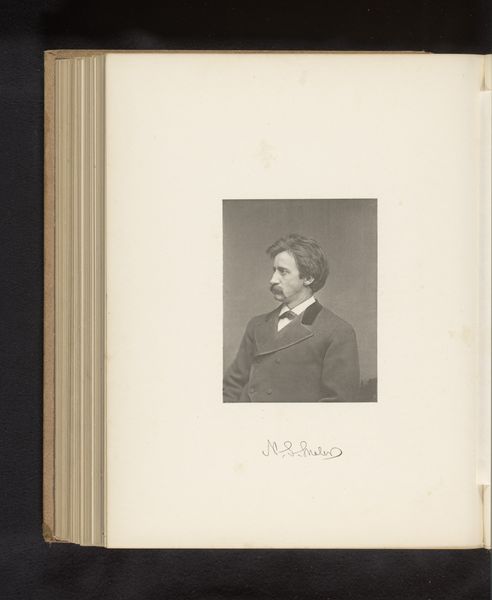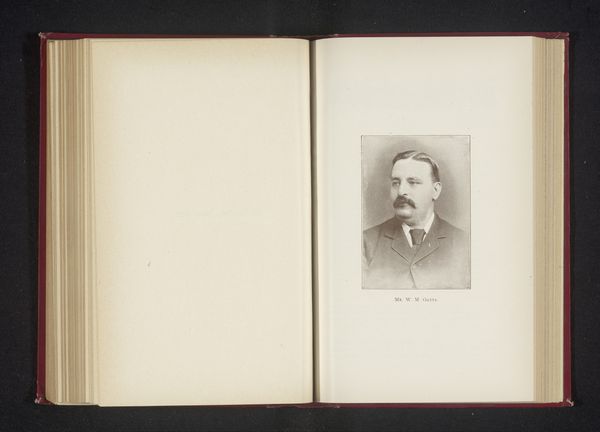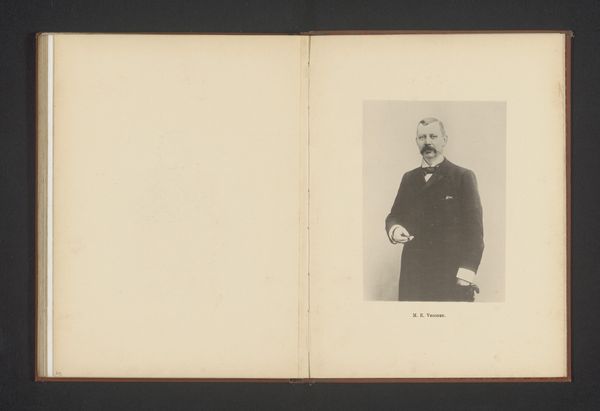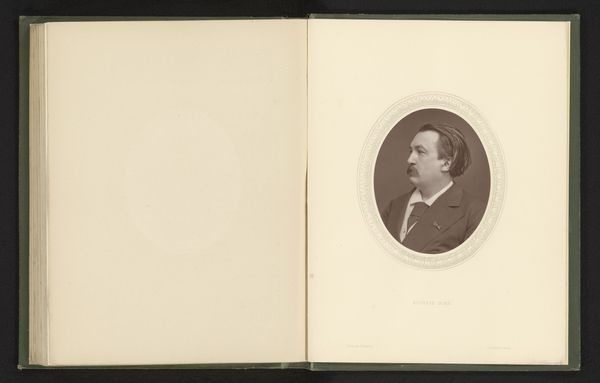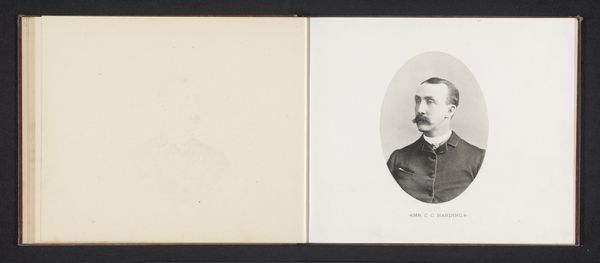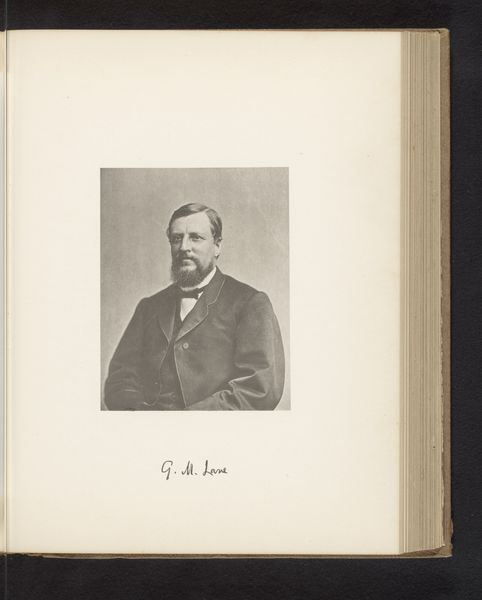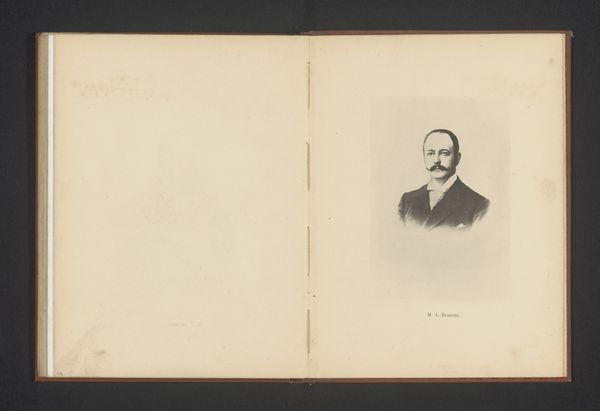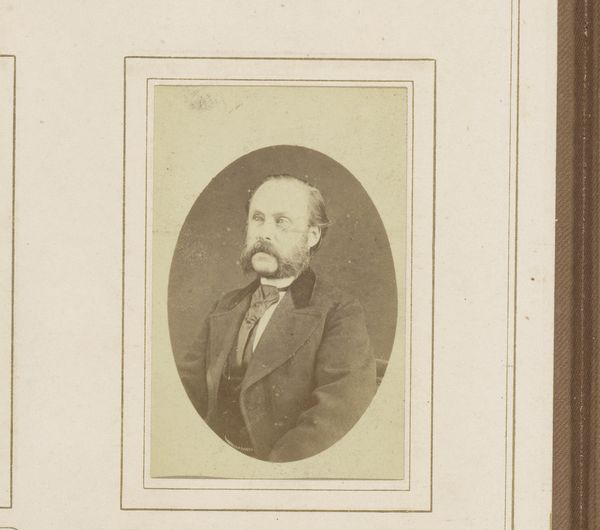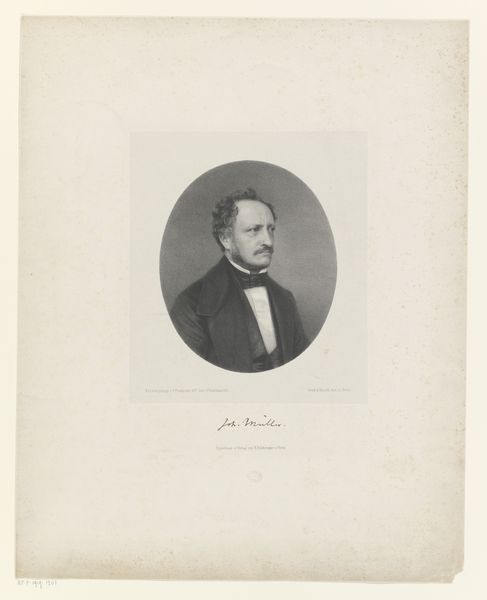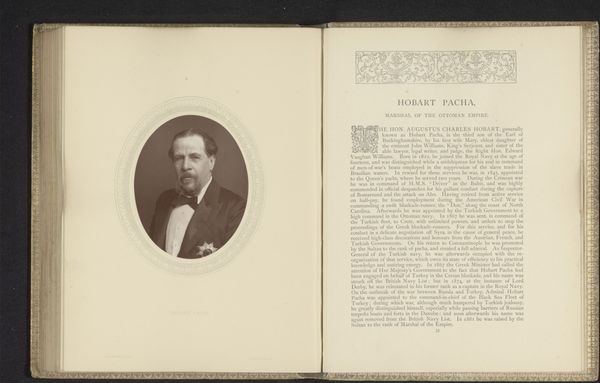
photography, gelatin-silver-print
#
portrait
#
photography
#
gelatin-silver-print
#
academic-art
Dimensions: height 134 mm, width 111 mm
Copyright: Rijks Museum: Open Domain
This is a photographic portrait of David Williams Cheever, made by an anonymous photographer using a then-new technology. Photography in the 19th century involved a complex interplay of chemistry and optics. The collodion process, likely used here, required coating a glass plate with a light-sensitive emulsion, exposing it in a camera, and then developing it, all within a short timeframe. This demanded skill, precision, and a dedicated workspace, often a portable darkroom. The resulting image, a silver print on paper, has a unique tonal range and depth. Photography democratized portraiture, making it accessible to the middle class. Yet, it also created new forms of labor, from photographers to the workers who produced photographic materials. Understanding the material processes behind this portrait helps us appreciate its historical and social significance, reminding us that even seemingly simple images are the product of complex technologies and human effort.
Comments
No comments
Be the first to comment and join the conversation on the ultimate creative platform.
